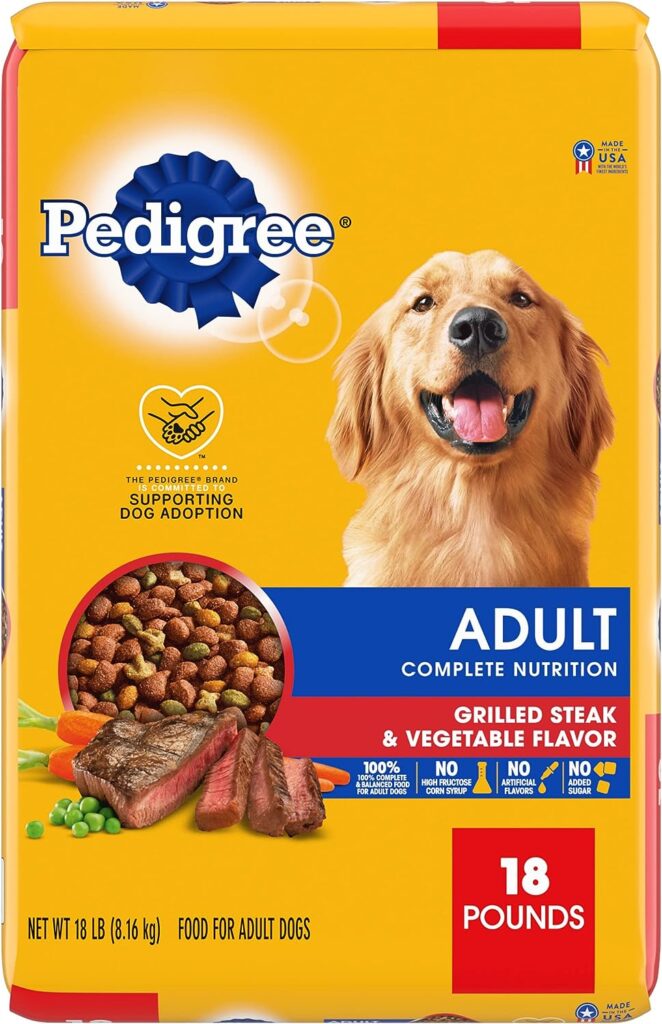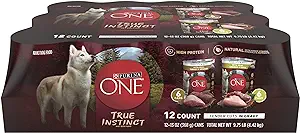Like most pet owners, I have a strong bond with my pets. I wish them a long, happy, and healthy life. In addition to making sure they have lots of physical activity and cerebral stimulation, I work hard to provide them the best meals I can. At the age of fourteen, I lost two of my dogs to cancer, so I was extra motivated to make sure it didn’t happen again. Unfortunately, the most common cause of death in dogs is cancer, which is neither acceptable nor natural. I think a big part of this is because many dog meals are of low quality, however the exact causes are up for debate. It’s obvious that dog food with inferior ingredients is mostly to blame.
Chanllenges
Undoubtedly, nobody plans to give their pets subpar food. However, since manufacturers are not required to label their products clearly, it might be difficult to determine which dog food is better. Commercial dog diets in packages frequently include meats that have been treated with growth hormones, byproducts, and antibiotics. They also frequently include common fillers like pea protein, tapioca starch, and brewer’s yeast. Because of this, almost half of dog food is made up of carbs, which when absorbed, turn into sugar. Good nourishment is not provided by this type of composition.
In essence, most commercial dog food is subpar for canine health, akin to subsisting on a diet of fast food like burgers and fries for humans. And vegan dog food? Don’t get me started. While dogs are omnivores, they lean more towards carnivory. Additionally, if you think the dog food your veterinarian recommends is better, think again. That option may not be ideal for a German Shepherd either.
Understanding German Shepherd Nutritional Needs
German Shepherds are large, active dogs that require a balanced diet rich in protein, healthy fats, and essential nutrients. Here’s a breakdown of what their diet should ideally include:
1. High-Quality Protein
For muscle growth and maintenance, particularly in athletic breeds like German Shepherds, protein is essential. Seek for dog food that has fish, poultry, lamb, or other high-quality sources of protein as the main ingredient. Steer clear of goods that primarily use by-products or unidentified beef meals.
2. Healthy Fats
In addition to giving you energy, fats keep your coat healthy. Foods high in essential fatty acids include fish oil, flaxseed, and chicken fat. Both cognitive function and the health of the skin and coat are supported by omega-3 and omega-6 fatty acids.
3. Carbohydrates
While German Shepherds need some carbohydrates for energy, they should not dominate their diet. Opt for dog foods with whole grains like brown rice or oats, or high-quality grain-free options like sweet potatoes or chickpeas. Avoid foods with excessive fillers such as corn, wheat, or soy, which can contribute to weight gain and digestive issues.
4. Joint Support
German Shepherds are prone to joint problems, including hip dysplasia and arthritis. Look for dog foods that include glucosamine and chondroitin, which support joint health and mobility. Some foods also incorporate additional supplements or nutrients beneficial for joints.
5. Digestive Health
Good gut health is a prerequisite for good general health. Probiotics and prebiotics can help with nutrition absorption and digestion. Chicory root, beetroot pulp, and fermented foods are examples of ingredients that can improve stool quality and gut health.
Ingredients to Avoid
Not all dog foods are created equal, and some ingredients can be detrimental to your German Shepherd’s health. Avoid foods with:
1. Artificial Additives
Preservatives, colors, and flavors such as methoxy, BHA, and BHT might be harmful to your health.
2. Low-quality fillers
Although they have little nutritional value and might trigger allergies or sensitivities, ingredients like maize, soy, and wheat are frequently used to bulk up dog food.
3. Overindulgence in Carbohydrates
Consuming foods high in carbohydrates can cause weight gain and other health issues.
Here is the Best dog food for German shepherd:
1. Dry Kibble
Dry kibble is convenient and helps keep teeth clean. Look for brands that offer large-breed formulas with high-quality ingredients. Examples include:
- Royal Canin German Shepherd Adult: Specifically designed for the breed using components that promote healthy digestion and hair.
- Blue Buffalo Life Protection Formula: Features high-quality protein and essential nutrients for overall health.

2. Wet Food
Wet food can be more palatable and hydrating but is often more expensive. It’s a good option for picky eaters or dogs with dental issues. Quality choices include:
- The Science Diet of Hill Adult Large Breed: Offers a well-rounded diet with chondroitin and glucosamine supplemented in.
- Merrick Grain-Free Canned Food: Several high-protein, grain-free recipes are available from Merrick Grain-Free Canned Food.

3. Raw Diet
Raw diets can offer fresh, whole-food nutrition but require careful preparation to ensure a balanced diet. Consider commercially prepared raw food that is complete and balanced:
- Primal Freeze-Dried Nuggets: Provides raw nutrition with the convenience of freeze-drying.
- Stella & Chewy’s Dinner Patties: Offers raw diet benefits with easy feeding options.

Special Considerations for German Shepherds
1. Allergies and Sensitivities
German Shepherds may be more sensitive to some foods or allergic to them. If your dog is displaying symptoms like ear infections, itching, or upset stomach, you might want to think about a restricted ingredient formula or an elimination diet. Diets high in new proteins or low in grains can help detect and prevent allergies.
2. Age and Activity Level
Adapt your dog’s food to their activity level and stage of life. Puppies, adults, and elderly people require distinct diets. While older dogs may benefit from meals that assist joint health and weight control, highly active dogs may need more calories and protein.
3. Weight Management
Obesity can make joint issues worse and lower one’s quality of life. Keep an eye on your dog’s weight and make any required diet adjustments. If necessary, choose foods with weight control labels.
Conclusion
Understanding your German Shepherd’s specific nutritional requirements and selecting premium ingredients that promote their health and wellbeing are key to picking the finest dog food for them. Regardless of whether you feed your pet homemade meals, wet food, dry kibble, raw food, or a balanced diet, make sure the food is suitable for their activity level and life stage. Steer clear of fake additives, cheap fillers, and too many carbs. Your German Shepherd may live a long, active life if they eat the correct food.
Before making any big dietary changes for your dog, always check with your veterinarian to be sure it suits their needs.
